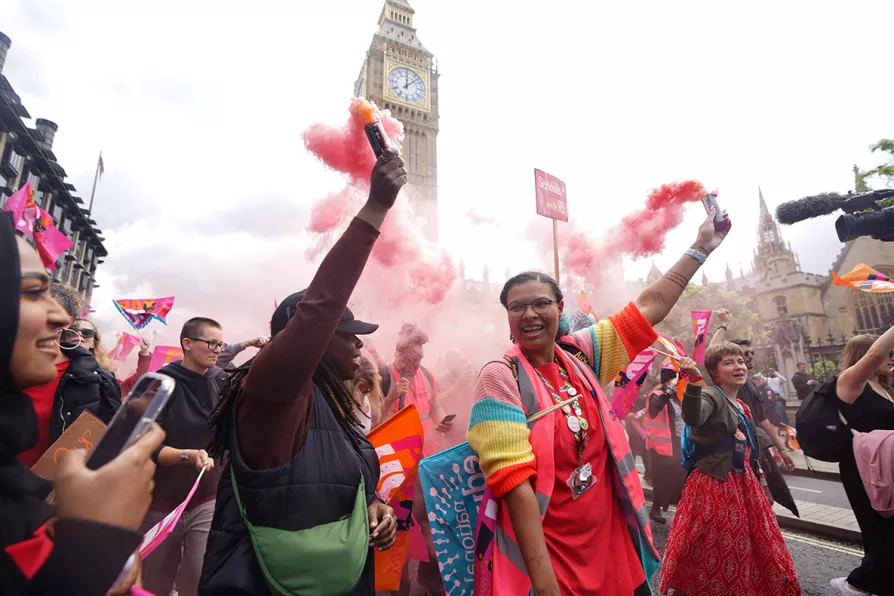Government urged to open talks with the largest education union to prevent national strikes

 Members of the National Education Union (NEU) take part in a rally through Westminster to Parliament Square, London, as teachers stage walkouts across England in an ongoing dispute over pay, July 5, 2023
Members of the National Education Union (NEU) take part in a rally through Westminster to Parliament Square, London, as teachers stage walkouts across England in an ongoing dispute over pay, July 5, 2023
THE GOVERNMENT has been urged to open talks to prevent national strikes by Britain’s largest education union this year.
The National Education Union (NEU) members passed a motion today to hold a snap poll on a formal ballot after receiving the offer.
If it is rejected in the poll, delegates agreed that the union should move to a formal ballot on strike action.
Similar stories













